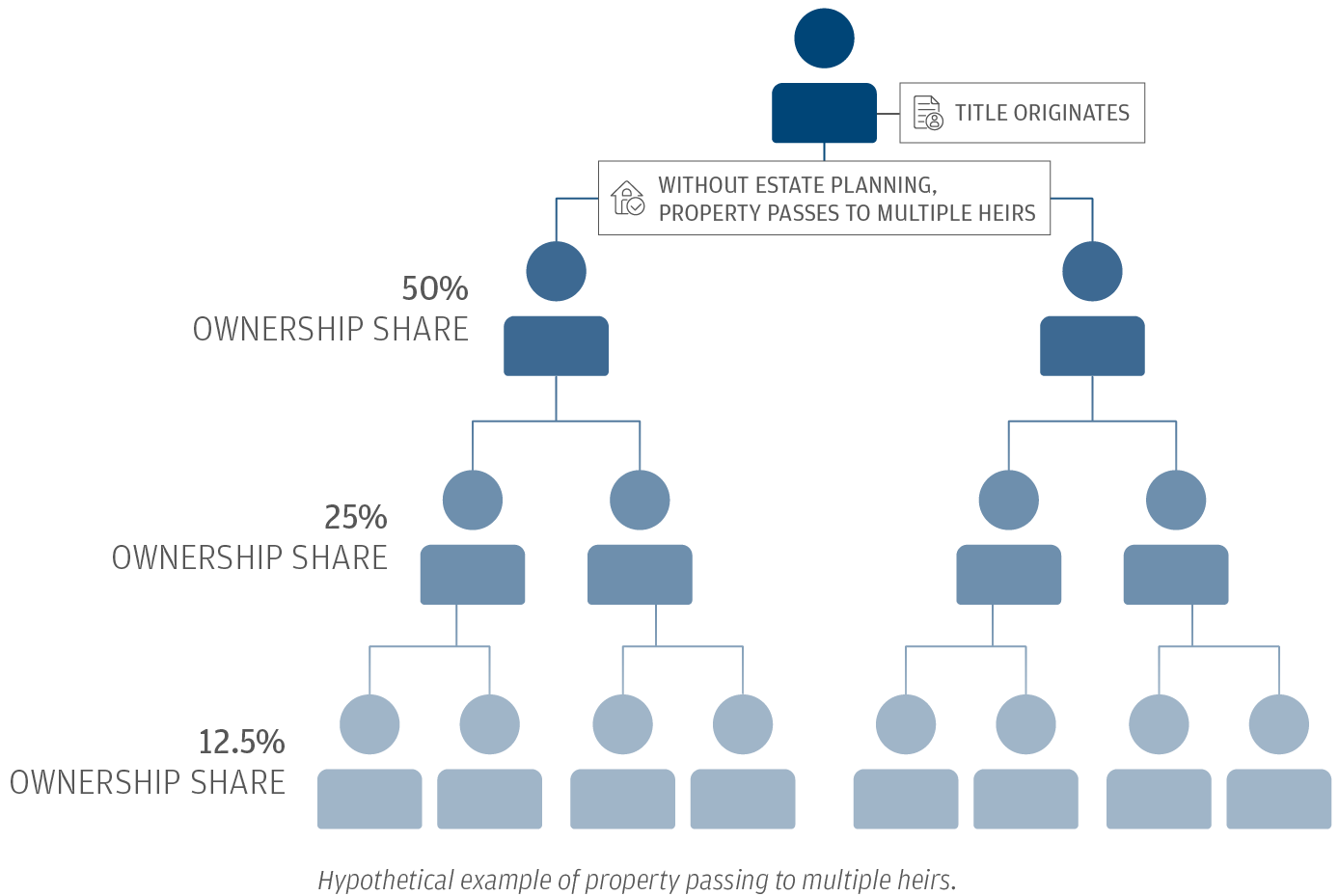JPMorganChase is committed to ensuring all homeowners can experience the full benefits of homeownership, which includes building and passing wealth to their families. Recent state and federal policy activity has generated important momentum to support heirs property owners. The JPMorganChase PolicyCenter is following this progress and amplifying solutions that help families build and preserve their generational wealth.
Recent Heirs Property Policy Activity
- On April 9, Arizona Governor Katie Hobbs signed the Uniform Partition of Heirs Property Act (UPHPA) into law. Arizona marks the 24th jurisdiction to enact the UPHPA. The UPHPA provides critical due process protections for families at risk of losing their home from an external third party purchasing a co-owner’s share of a property and subsequently forcing a partition sale. JPMorganChase supported enactment of the UPHPA in Arizona, building on our support for nationwide enactment of the UPHPA and prior legislative work to advance the UPHPA in California, Washington, Utah, Philadelphia, and the District of Columbia.
- On April 24, Representatives Nikema Williams (D-GA), Emanuel Cleaver (D-MO), Lizzie Fletcher (D-TX), and Byron Donalds (R-FL) introduced the Heirs’ Estate Inheritance Resolution and Succession (HEIRS) Act of 2024. JPMorganChase supports this proposal, which would establish a new grant program at the Department of Housing and Urban Development (HUD) to support individuals experiencing heirs property with key financial and technical assistance. The HEIRS Act would create:
- A grant program for states that adopt UPHPA (or substantially similar legislation) to fund a range of expenses relating to establishing and documenting property ownership rights or settling a decedent’s estate; and
- A grant program for qualifying nonprofit organizations that provide housing counseling and legal and financial assistance related to title clearing and home retention efforts for heirs property owners.
This proposal reflects recognition of heirs property as an urgent federal policy priority and reflects the bipartisan nature of solutions that help homeowners maintain their property rights, preserve their wealth, and stay in their home. The HEIRS Act is a strong complement to the existing U.S. Department of Agriculture (USDA) Heirs Property Relending Program (HPRP), which provides loans through eligible Community Development Financial Institutions (CDFIs) to help resolve heirs property cases. In 2023, the JPMorganChase PolicyCenter published recommendations to strengthen the HPRP. Several of these recommendations are addressed through the HEIRS Act, such as providing grants (rather than loans), which do not need to be repaid, to heirs and making heirs in all geographies eligible for HEIRS Act funds. Recent legislation introduced by Representatives Sanford Bishop (D-GA) and Don Davis (D-NC) would also reauthorize the HPRP and direct USDA to incorporate pro-bono legal support for eligible heirs property owners.
On April 24, Representatives Williams (D-GA) and Fletcher (D-TX) also introduced the Heirs Empowerment and Inheritance Rights (HEIR) Act, which would allow heirs property owners to use alternate forms of documentation to prove property ownership to receive disaster aid. The JPMorganChase PolicyCenter highlighted the importance of accepting alternative pathways to verify ownership outside of formal deeds in its 2023 paper, Preserving Generational Wealth by Untangling Titles for Heirs Property Homeowners.
What’s Next
Recent policy momentum at multiple levels of government reflects the extent to which addressing heirs property is increasingly recognized as a homeownership stability and wealth preservation priority. In addition to the activity noted above, several other municipalities have introduced UPHPA this year. The JPMorganChase PolicyCenter will continue to lift up evidence-based solutions that help homeowners build and preserve wealth.






